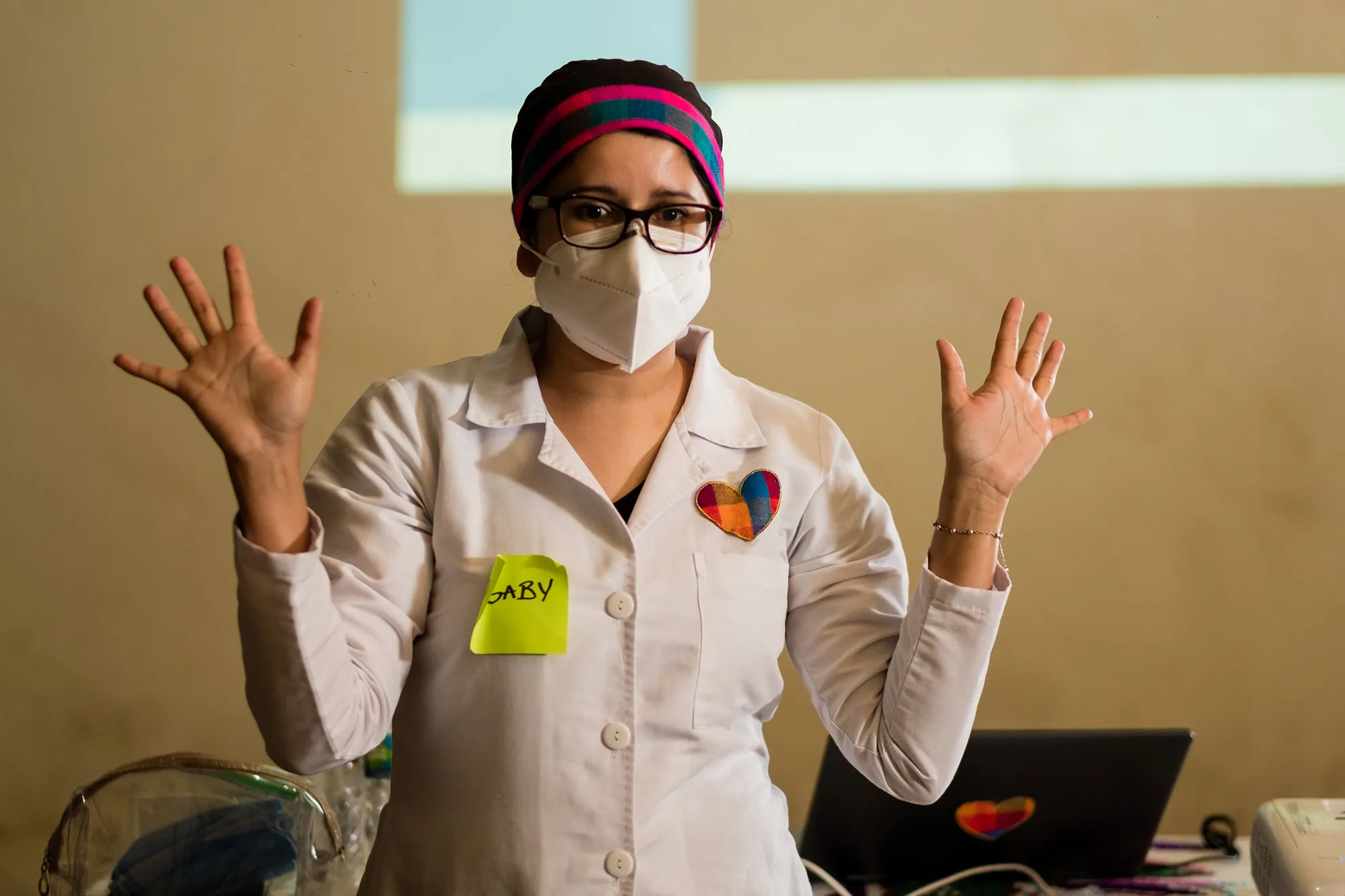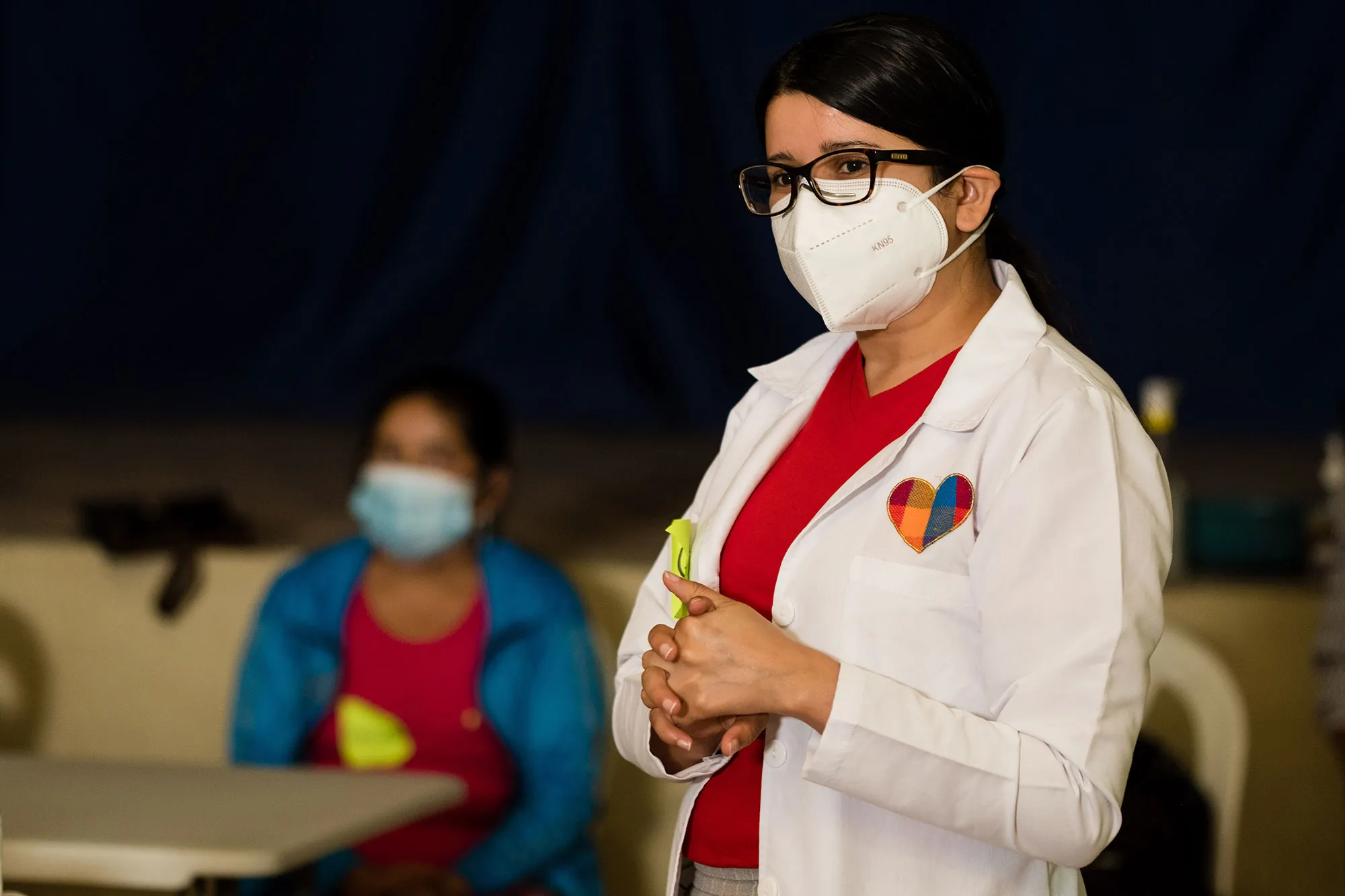Gabriela Portillo is a surgeon and is a postgraduate degree candidate on health management. She is currently working on CARE’s COVID-19 humanitarian response in Honduras with the Prolempa Project, an initiative to increase the economic well-being of women and youth in the country’s rural Lempa region. The region is known as the Dry Corridor and its residents face severe droughts, water shortages and food insecurity due to lack of rain. With the arrival and spread of COVID-19, the team adapted its tactics and goals to the needs created by the pandemic.
She is part of the COVID-19 humanitarian response carried out with funding from the Canadian government. CARE and Prolempa are implementing the response, which consists in deliveries such as food packages, hygiene kits, agricultural supplies with family orchards, transfers, and supermarket vouchers. These deliveries take place in areas where the community, respecting social distancing guidelines, can learn about economic resilience, risk prevention during the pandemic and Gender based violence.
Gabriela carries out her work, informing on risk prevention during these deliveries.
“I am happy to be a humanitarian worker. There has been a great effort in the [COVID-19] response. Most of us involved in the project have not seen our families, yet the whole team remains COVID-19 negative and that is a huge relief for us. We are so aware of the responsibility we bear each time we visit a community.
“We use N19 masks to protect those that come into contact with us. Full protective PPE is something that we leave for hospital use, for those working in COVID-19 wards, even more exposed than us, those battling with the virus in the hospitals. [Here in Honduras] PPE is scarce, and they need it to protect their lives. We cannot arrive in a community in full PPE because that would create panic in the communities we visit.
“Throughout all this process, from families receiving food or cash transfers, women were the organizers, the leaders because they know the context.”
“We go to the communities to deliver food, cash transfers, and provide capacity building. We make sure we follow bio-security protocols. We check temperatures and explain the use of thermometers and how infrared thermometers are harmless. We ask for previous symptoms and make sure participants wash their hands and social distance. We provide masks. One of the lessons learned in one of the communities in the west part of Honduras is that many people do not have access to disposable masks and cannot afford to buy a mask. Many didn’t see the use of it and decided not to make getting a mask a priority. We came up with alternatives and found reusable masks in their traditional Lenca clothing. They used those with pride.


